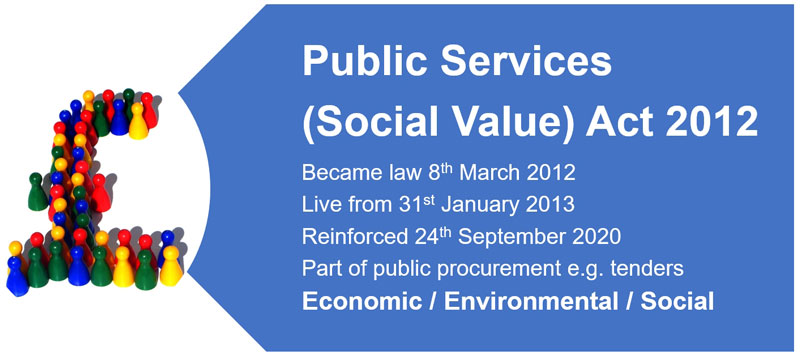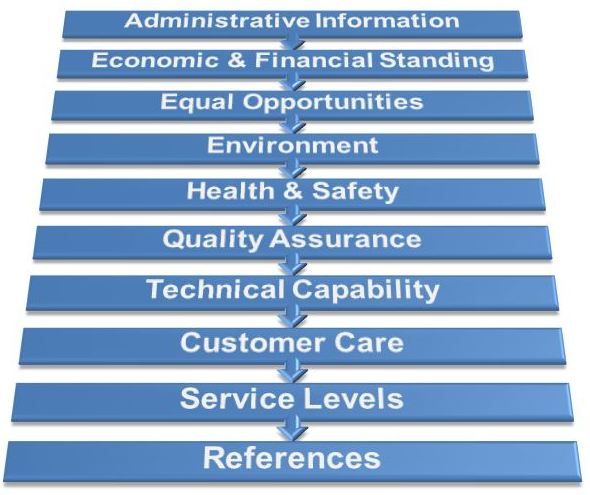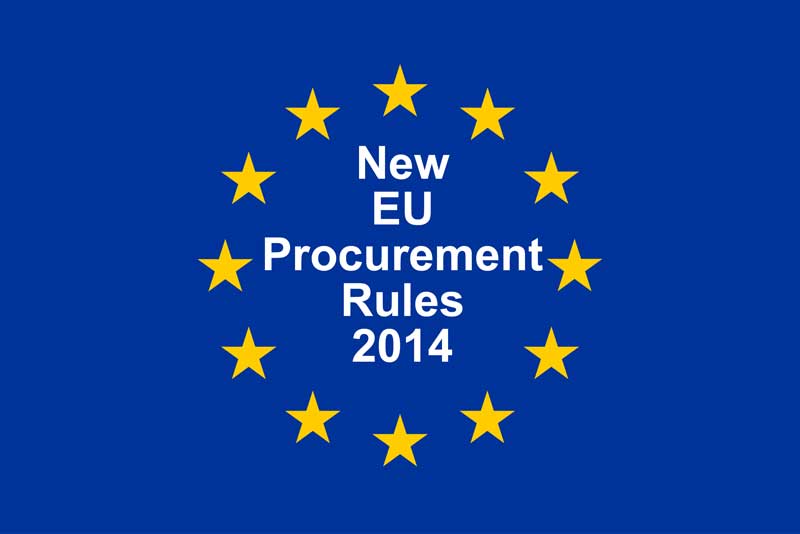How to Answer Social Value Tender Questions
The Public Services (Social Value) Act 2012 became law on the 8th March 2012 and went live 31st January 2013. Public sector now have to consider social value as part of any procurement. Not just value for money (cost and quality). So now you may have to respond to social value tender questions when bidding for public sector contracts.

What is Social Value in Tendering?
The Act requires authorities to make the following considerations at the pre-procurement stage:
- How what is proposed to be procured might improve the economic, social and environmental well-being of the “relevant area”
- How in conducting a procurement process it might act with a view to securing that improvement
Some tenders have method statement questions on what social value you will provide. Others have social value calculator Excel spreadsheets to complete (see below).
Some public sector tenders completely ignored social value when tendering! But the Government’s latest measures (below) reinforce the need to include social value in tender evaluation.
Some tenders weight social value as high as 10-30% of the total possible score! So, there can be a lot at stake.
Social Value Tender Questions
Social value tender questions can appear daunting at first. But once you start to understand social value, they become a lot easier. These types of tender questions can also help local businesses to score higher than non-local competitors. The reason is that they are already contributing to their local “relevant area”. For example:
Economic – employment, training and work-experience opportunities for local people.
Environmental – local staff, local suppliers and local work reduces your carbon footprint.
Social – supporting local community initiatives e.g. charities, local amateur sports teams etc.
Many of the terms used by councils and government can be confusing: “social integration and community cohesion” and “community development and engagement“. But in fact most of it is common sense. Here are some typical areas for social value and how you might respond:
…How to Answer Social Value Tender Questions Read More »




